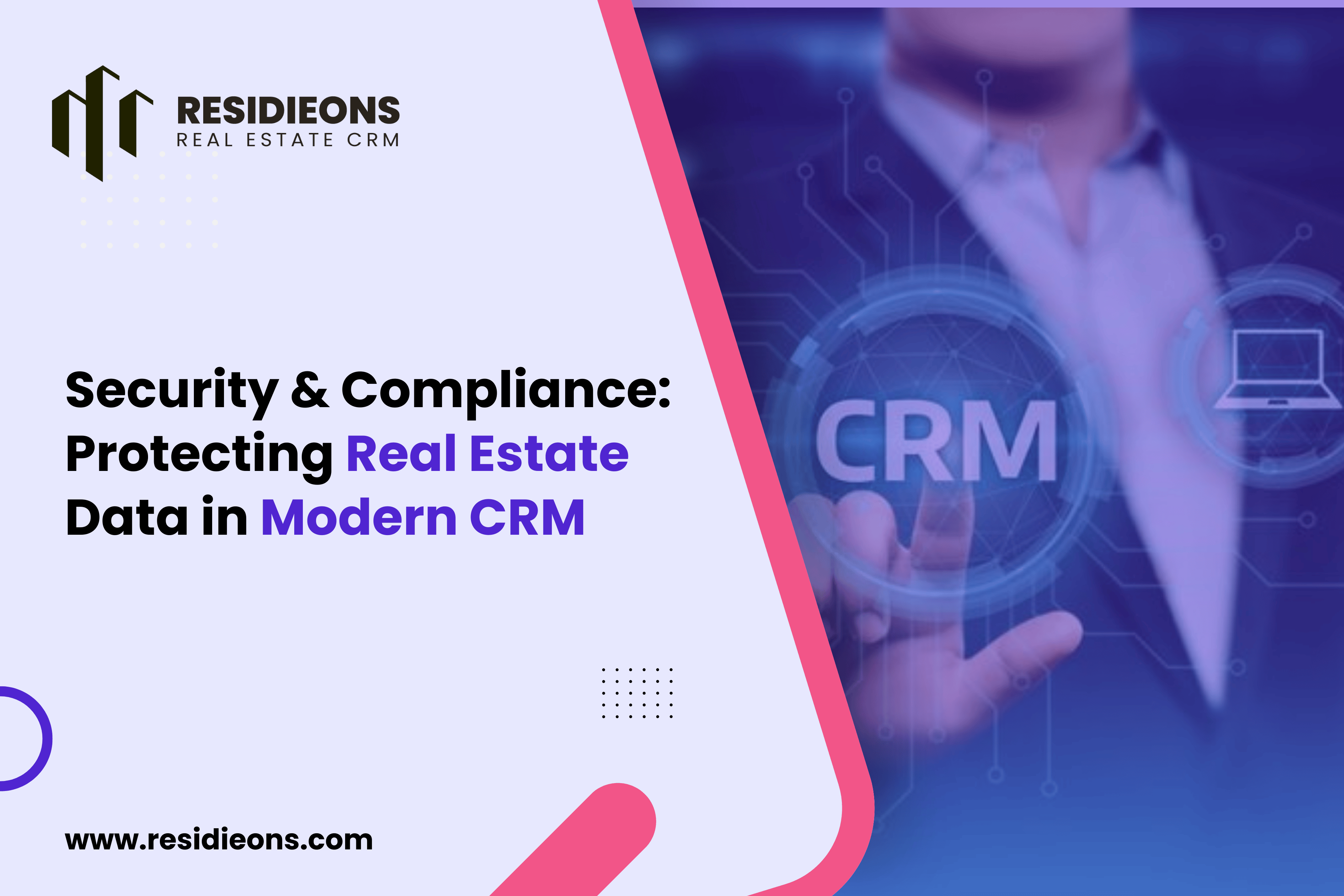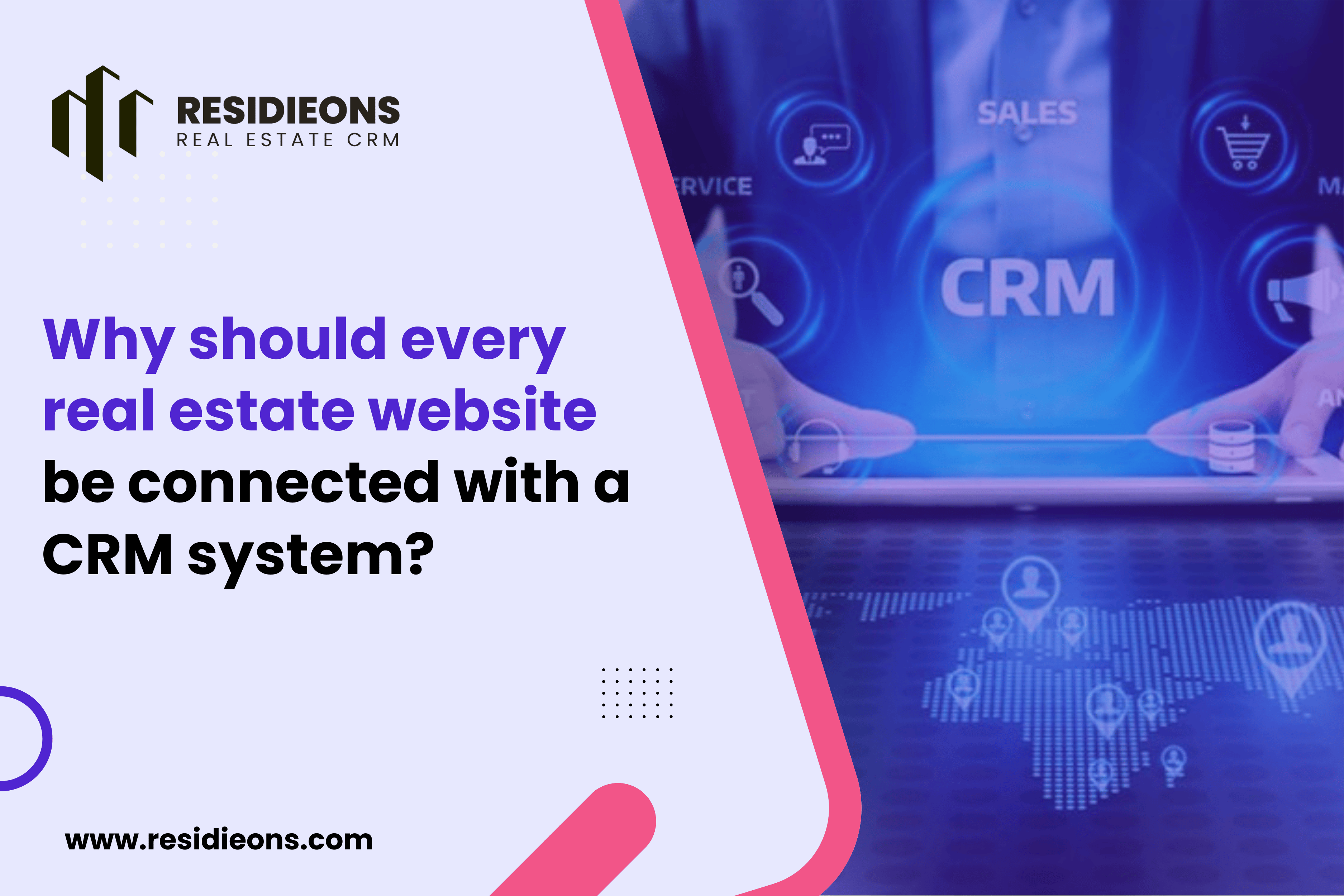
Real estate CRM (customer relationship management) has grown to be an essential tool for asset retailers in the contemporary competitive marketplace. With the increasing complexity of handling consumer relationships and the desire for green lead management, a well-implemented CRM system can significantly increase the productivity and fulfillment of property groups. This article offers a complete evaluation of real estate CRM, highlighting its advantages, key capabilities, and functionality. It additionally offers insights into deciding on the right CRM solution, enforcing and integrating it within asset corporations, excellent practices for usage, overcoming demanding situations, and maximizing return on investment (ROI). Additionally, it explores future traits and improvements in real estate CRM that might be shaping the industry. Whether you are a seasoned property agent or simply starting your profession, information and harnessing the energy of real estate CRM can pressure your commercial enterprise toward more efficiency, advanced customer delight, and increased profitability.
Real Estate Customer Relationship Management (CRM) is a software
solution designed specifically for asset sellers to manage and streamline their
commercial enterprise operations. It presents a centralized database for
storing and organizing purchaser and belongings records, in addition to
equipment for dealing with leads, automating tasks, and enhancing conversation.
With the ever-developing complexity of the real property enterprise, asset marketers want a reliable device to stay organized and efficient. Real Estate CRM offers a range of blessings, along with centralized statistics control, improved patron communication, automated workflows, and increased productivity. It enables property sellers to build more potent relationships with customers, streamline lead management, and, in the long run, develop their businesses.
One of the important benefits of real estate CRM is its capability to
streamline lead control. It allows belonging sellers to track and prioritize
leads, assign duties, and automate follow-ups. By capturing lead facts and
monitoring interactions, agents can efficiently nurture prospects and convert
them into customers.
Real estate CRM enables better patron communication and engagement.
Agents can easily access consumer records, track choices, and stay on top of
vital dates and cut-off dates. The machine also permits automated conversation,
consisting of customized emails and reminders, making sure that clients acquire
well-timed updates and a high level of service.
Efficiency is essential in the rapid-paced global economy of actual estate. Real Estate CRM allows asset dealers to keep time and boost productivity with the aid of automated repetitive obligations, appointment scheduling, and document era. It also affords a centralized platform for collaboration, enabling retailers to work extra efficiently with crew contributors and outside stakeholders.
Contact and lead management are in the middle of real estate CRM. It
allows agents to shop and prepare client facts, track lead sources, and control
follow-ups. The machine captures and analyzes statistics, helping dealers
perceive trends and make informed choices to grow their commercial enterprises.
Real Estate CRM gives tools for project and appointment tracking, making
sure that agents by no means pass over essential time limits or conferences.
Agents can set reminders, schedule appointments, and prioritize tasks, keeping
them prepared and on top of their day-to-day sports.
Property listing and management features in Real Estate CRM allow marketers to efficiently manage their stock of belongings. They can create and update listings, music asset details, and, without problems, percentage statistics with customers. This functionality ensures that marketers have accurate and up-to-date belonging data at their fingertips.
Before selecting a real estate CRM answer, property dealers have to
assess their particular needs and requirements. This consists of thinking about
the dimensions of their organization, the variety of users, and the desired
functionality. It's crucial to perceive the important pain points and areas for
development to find a CRM machine that addresses those needs effectively.
Once the organization's wishes are described, asset retailers need to
examine different CRM software program options. Factors to not forget consist
of ease of use, customization alternatives, integration competencies with
different equipment, and customer service. Trying out demos or unfastened
trials can help dealers get a feel for the software and determine if it meets
their requirements.
Integration and scalability are crucial elements when choosing a real
estate CRM solution. Agents have to keep in mind whether or not the CRM can
integrate with current systems, along with electronic mail marketing equipment
or belongings portals. Additionally, the CRM must be scalable to accommodate
future booms and additional customers without compromising performance.
Choosing the right real estate CRM solution may have a tremendous effect on a property agent's success. By streamlining lead management, enhancing patron conversation, and enhancing productiveness, agents can focus on what they do best: offering splendid service and ultimate deals. So, take some time to find the CRM that really fits your business enterprise and watch your enterprise thrive!
Implementing an actual estate CRM machine in your property enterprise
requires cautious planning and practice. Start by assessing your company's
needs and desires and becoming aware of the particular features and
functionalities you require in a CRM. Consider elements inclusive of lead
management, contact tracking, deal tracking, and reporting competencies. This
will help you narrow down your options and select a CRM that is high-quality
and suits your organization's requirements.
Once you've selected a real estate CRM, it's vital to make sure your
crew is properly trained and onboarded. Provide complete training periods to
familiarize your personnel with the CRM's features and functionalities.
Encourage them to ask questions and deal with any issues they may have. This
will help them feel more assured and comfortable with the use of CRM in their
daily work.
To maximize the effectiveness of your actual estate CRM, it's vital to migrate your present facts and combine them seamlessly into the new gadget. This includes contact information, belongings information, and transaction records. Work closely with your CRM company to ensure a smooth statistics migration technique. Integrating your CRM with different equipment and systems, together with your internet site or e-mail advertising and marketing software program, can also streamline your workflow and enhance efficiency.
Every employer has its own particular workflow and procedures. Customize
your actual property CRM to align with your organization's unique wishes. This
may additionally involve creating custom fields, tags, or pipelines to track
leads and deals more effectively. Tailoring the CRM for your workflow will
enhance productivity and ensure an unbroken transition within your team.
Take advantage of the automation and workflows provided by your actual
estate CRM. Automate repetitive responsibilities together with sending
follow-up emails, scheduling belongings showings, or updating contact records.
This frees up time and permits you to focus on extra-important responsibilities
like constructing purchaser relationships and ultimate deals.
Regularly Updating and
Maintaining CRM Data
Keep your real estate CRM records up-to-date and accurate. Regularly replace touch information, asset information, and transaction statistics. This guarantees that you have the most recent and applicable data at your fingertips. Additionally, encourage your crew to input records consistently and directly to preserve the integrity of your CRM device.
One of the most demanding situations in implementing a real property CRM
is consumer adoption. Some crew participants might also withstand or conflict
with the new machine. To conquer this task, offer ongoing aid and schooling,
address issues promptly, and emphasize the blessings of the CRM. Implementing
powerful trade management strategies can help ease the transition and maximize
adoption.
Protecting client data and making sure information is protected are
vital issues when using an actual estate CRM. Choose a CRM provider that
prioritizes information encryption, steady backup structures, and compliance
with records protection regulations. Educate your crew on quality practices for
record protection, such as the usage of strong passwords and avoiding sharing
sensitive information via unsecured channels.
Regularly measure and analyze the performance of your actual property CRM to evaluate its effectiveness and ROI. Track metrics inclusive of lead conversion fees, deal closure quotes, and purchaser delight tiers. This information will help you become aware of areas for improvement, optimize your sales procedures, and make knowledgeable enterprise decisions.
Artificial intelligence and machine learning are revolutionizing the
real property industry, and CRM systems are no exception. AI-powered CRM
answers can examine facts, expect consumer behavior, and automate repetitive
responsibilities. This era can beautify the lead era, personalization, and
consumer dating control.
With the growing reliance on cell devices, cell CRM answers are becoming
more famous within the real estate industry. Mobile CRM apps allow property
agents to get the right of entry to and replace information on the move, manage
duties, and collaborate with team contributors. This flexibility guarantees
that retailers can stay effective and responsive wherever they are.
Virtual reality (VR) and augmented reality (AR) technologies are
reworking the way residences are showcased to capacity customers. Integrating
VR and AR capabilities into real estate CRM systems allows dealers to offer
immersive virtual belongings excursions, interactive floor plans, and 3D
visualizations. This enhances customer enjoyment and enables buyers to make
more knowledgeable choices.
Remember, enforcing a real estate CRM is an investment in your
corporation's productivity and achievement. Choose a CRM that suits your
wishes, train and onboard your team effectively, and often compare its
performance to ensure you are getting the maximum from your CRM. With the right
method and usage, an actual estate CRM can be a game-changer for asset sellers.
In the end, real estate CRM has revolutionized the way belonging
marketers manipulate their business and purchaser relationships. By leveraging
the blessings of CRM, which include streamlined lead control, more desirable
communication, and multiplied productiveness, property organizations can
advantage an aggressive side within the market. Selecting the proper CRM
solution, implementing it successfully, and following best practices are
important for maximizing the advantages and ROI of real estate CRM. As the
enterprise continues to conform, embracing future traits and innovations will
similarly propel loyal marketers closer to success. By adopting and leveraging
the strength of real estate CRM, property agents can establish long-lasting
client relationships, raise their efficiency, and acquire sustainable growth
within the dynamic actual property marketplace.

The real estate market is changing very quickly today, and if you want to s
Read More...


If you are in the real estate business, you already know how tou
Read More...
In today’s competitive real estate market, managing leads, foll
Read More...